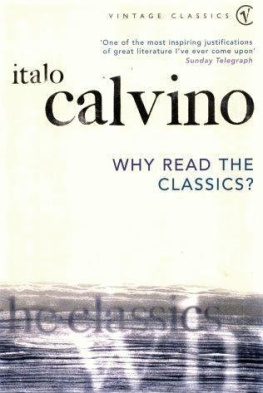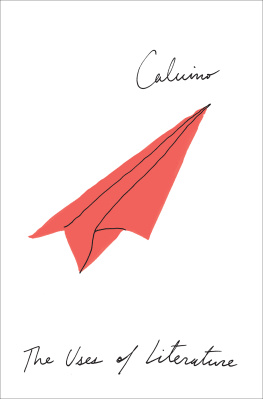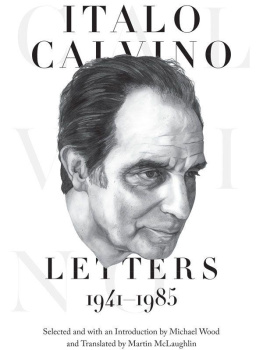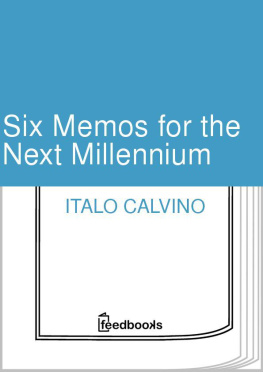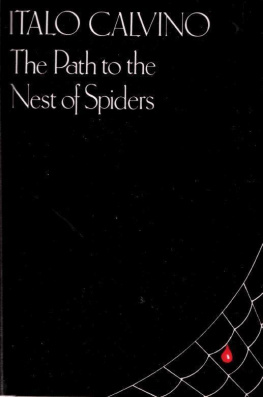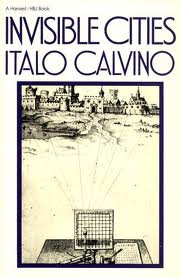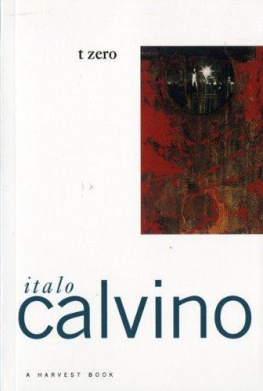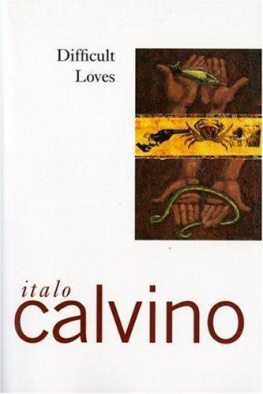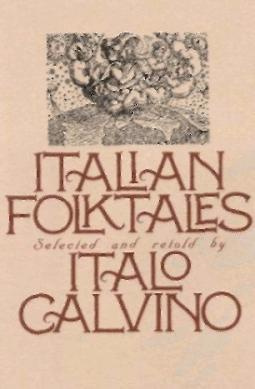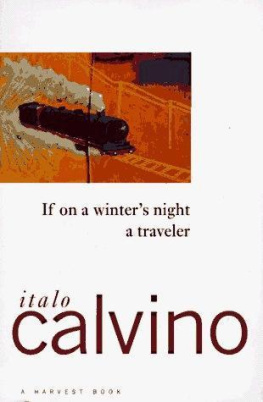Italo Calvino - The Complete Cosmicomics (Penguin Translated Texts)
Here you can read online Italo Calvino - The Complete Cosmicomics (Penguin Translated Texts) full text of the book (entire story) in english for free. Download pdf and epub, get meaning, cover and reviews about this ebook. year: 2010, publisher: Penguin Classics, genre: Science fiction. Description of the work, (preface) as well as reviews are available. Best literature library LitArk.com created for fans of good reading and offers a wide selection of genres:
Romance novel
Science fiction
Adventure
Detective
Science
History
Home and family
Prose
Art
Politics
Computer
Non-fiction
Religion
Business
Children
Humor
Choose a favorite category and find really read worthwhile books. Enjoy immersion in the world of imagination, feel the emotions of the characters or learn something new for yourself, make an fascinating discovery.
- Book:The Complete Cosmicomics (Penguin Translated Texts)
- Author:
- Publisher:Penguin Classics
- Genre:
- Year:2010
- Rating:3 / 5
- Favourites:Add to favourites
- Your mark:
- 60
- 1
- 2
- 3
- 4
- 5
The Complete Cosmicomics (Penguin Translated Texts): summary, description and annotation
We offer to read an annotation, description, summary or preface (depends on what the author of the book "The Complete Cosmicomics (Penguin Translated Texts)" wrote himself). If you haven't found the necessary information about the book — write in the comments, we will try to find it.
The Complete Cosmicomics (Penguin Translated Texts) — read online for free the complete book (whole text) full work
Below is the text of the book, divided by pages. System saving the place of the last page read, allows you to conveniently read the book "The Complete Cosmicomics (Penguin Translated Texts)" online for free, without having to search again every time where you left off. Put a bookmark, and you can go to the page where you finished reading at any time.
Font size:
Interval:
Bookmark:

Translated byMartinMcLaughlin, TimParks and WilliamWeaver

PENGUIN BOOKS
PENGUIN MODERN CLASSICS
It is worth running the risk of hyperbole to boldly state that The Cosmicomics is a work of literature which could be regarded as a rival to the Book of Genesis this is a collection to relish, written by a master of transparent prose who unites thought and imagination and shows an expansive generosity of mind and heart. He is well served by all three translators, who display remarkable uniformity in their ability to reproduce the brio of the original Joseph Farrell, The Times Literary Supplement
Italo Calvinos brilliant, ludic stories show a writer far ahead of his time intelligence, humour, poignancy and irony distilled to the purely luminous Ursula K. Le Guin, Guardian
Charming rich and astonishing they are light, but profound, whimsical yet serious, playful and a reminder that life is a game Allan Massie, Scotsman
A comic look at the cosmos and the history of the universe A unique series of flights of fancy that read like a space-age Thousand and One Nights Alan Chadwick, Metro London
Entirely unlike anything that anyone else has written In Cosmicomics Calvino makes it possible for the reader to inhabit a meson, a mollusc, a dinosaur; makes him for the first time see light ending a dark universe Gore Vidal, New York Review of Books
Italo Calvino, one of Italys finest post-war writers, has delighted readers around the world with his deceptively simple, fable-like stories. He was born in Cuba in 1923 and raised in San Remo, Italy. During the Second World War, Calvino fought for the Italian Resistance. He died in Siena in 1985.
This edition corresponds to Claudio Milaninis comprehensive edition of the cosmicomic tales, Tutte le cosmicomiche, published in 1997. It contains the two volumes translated by William Weaver, Cosmicomics (1968) and Time and the Hunter (1969), the four stories translated by Tim Parks (World Memory, Nothing and Not Much, Implosion and The Other Eurydice), from Numbers in the Dark (1995), plus seven newly translated tales from La memoria del mondo e altre storie cosmicomiche (1968; World Memory and Other Cosmicomic Stories). The two volumes translated by William Weaver were originally published in America; for this edition, minor changes have been made to anglicize the text and standardize presentation, together with minor emendations to a sentence in certain stories (At Daybreak, All at One Point, How Much Shall We Bet?, The Dinosaurs, The Form of Space, The Light-Years, The Soft Moon, Blood, Sea, Mitosis, Meiosis, The Night Driver and The Count of Monte Cristo) to reflect the original Italian.
Italo Calvino (192385) is best known in the English-speaking world for two kinds of fiction: his historical fantasy works of the 1950s, collected in the trilogy Our Ancestors (1960), and the semiotic and metafictional experiments of the 1970s, particularly the highly successful Invisible Cities (1972) and If on a Winters Night a Traveller (1979). He chose these genres as radical alternatives to the realist narratives that he had embarked on as a young writer and which he regarded as the norm for Western fiction. But the cosmicomic stories that Calvino began to write in 19634, although less well known in the Anglo-American world, were if anything even more original than any of the other kinds of narrative he produced. For a start, he invented this new genre himself: each cosmicomic tale begins with a statement of a (genuine or apocryphal) scientific hypothesis, usually regarding the cosmos, and this is then followed by a first-person narrative, recounted by the unpronounceable but irrepressible protagonist, Qfwfq. Qfwfq has been described as a cosmic know-all, since he was present at all the key moments in the history of the universe from the Big Bang onwards, and his comic colloquialism undercuts the potential seriousness of the scientific themes. The neologism invented by Calvino encapsulated two ways in which traditional realism could be expanded: by a cosmic content and by a comic mode of writing. The cosmicomic stories are also significant because this new vein of writing initiated the second half of Calvinos career: in the twenty years from 1943 to 1963, he had alternated between the realism (initially neorealism) of his first fictions including his debut novel, The Path to the Spiders Nests (1947) and the historical fantasy of Our Ancestors; but his first cosmicomic volume, Cosmicomics (1965), inaugurated the second two decades of more experimental writing.
Despite the fact that these stories are less well known than others, Calvino clearly considered this genre a significant and fertile space for literary experiment, as he continued to use the form for the next two decades, publishing a total of thirty-four tales in all. The first volume to be published Cosmicomiche (1965; Cosmicomics), which later won the Asti d Appello Prize contained twelve fictions; the second collection Ti con zero (1967; T zero, translated as Time and the Hunter) contained eleven new stories, and both books were translated into English by William Weaver in the late 1960s. A little-known third collection La memoria del mondo e altre storie cosmicomiche (1968; World Memory and Other Cosmicomic Stories), a volume not available commercially offered twenty fictions in all, twelve from the previous two collections and eight new pieces (seven of these new items are translated here for the first time into English; the other new 1968 tale, the title story, was translated by Tim Parks as World Memory in the 1995 collection Numbers in the Dark and Other Stories). By 1968, then, Calvino had written thirty-one cosmicomic stories. Just before his untimely death, aged sixty-one, he put together an almost complete collection, entitled Cosmicomiche vecchie e nuove (1984; Cosmicomics Old and New) and containing thirty-one tales; but for this volume he deselected two stories (World Memory and Shells and Time) and in their place inserted two new pieces specially written for the 1984 edition: Nothing and Not Much and Implosion. In 1980 he published a variant of one of the 1968 tales, The Stone Sky, giving it an alternative title, The Other Eurydice (although in fact the story must have been written about ten years earlier since it had appeared first in English translation in 1971). This rewrite and the last two tales written in 1984 brought the total of cosmicomic tales to thirty-four (all three of these later stories can be found translated by Tim Parks in Numbers in the Dark). A posthumous Italian volume containing the complete thirty-four stories appeared in an authoritative Mondadori edition as Tutte le cosmicomiche (1997; The Complete Cosmicomics), edited by the Italian expert on these tales, Claudio Milanini. This English volume corresponds to Milaninis comprehensive edition: it contains the two volumes translated by William Weaver, the four stories translated by Tim Parks, plus seven newly translated tales, offering the English-speaking reader the chance to savour Calvinos entire output in a genre he cultivated for two decades.
Font size:
Interval:
Bookmark:
Similar books «The Complete Cosmicomics (Penguin Translated Texts)»
Look at similar books to The Complete Cosmicomics (Penguin Translated Texts). We have selected literature similar in name and meaning in the hope of providing readers with more options to find new, interesting, not yet read works.
Discussion, reviews of the book The Complete Cosmicomics (Penguin Translated Texts) and just readers' own opinions. Leave your comments, write what you think about the work, its meaning or the main characters. Specify what exactly you liked and what you didn't like, and why you think so.


